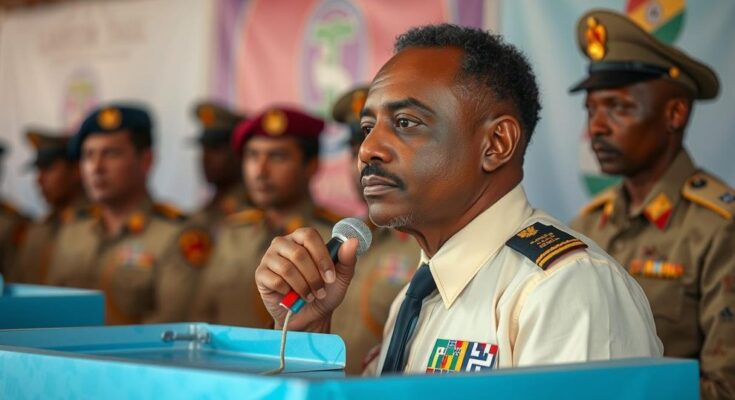Chad held a general election to end military rule, but voter turnout was low at 38% due to an opposition boycott. President Deby encouraged participation, despite skepticism about electoral legitimacy. Concerns about pre-determined results and ongoing security issues from groups like Boko Haram persisted, complicating Chad’s transition to democracy.
On Sunday, Chad conducted a general election, which the government asserts is a crucial move toward concluding military governance that has persisted for three years. However, voter participation was anticipated to be low following a boycott appeal by opposition parties. Preliminary estimates indicated a turnout of merely 38 percent as citizens cast votes for a new parliament, provincial assemblies, and local councils, according to the National Elections Management Agency (ANGE).
Officials in wealthy districts attributed this lack of enthusiasm to unfavorable weather conditions. Nevertheless, opposition leaders argued that the electoral results were predetermined, leading to significant voter apathy. Success Masra, leader of the opposition Transformers party, reported that a majority of voters stayed home in response to the boycott. The boycott benefitted candidates aligned with the ruling party led by President Mahamat Idriss Deby Itno, whose presidency emerged from a military coup in 2021, followed by a controversial electoral process.
President Deby encouraged citizens to actively participate, referring to the election as a “historic day.” However, doubts about the legitimacy of the elections prevailed. Voters expressed skepticism about the effectiveness of their participation, whilst calls from the opposition indicated potential rigging. Observers noted an increase in voting among military and nomadic communities, yet significant challenges remain for the broader Chadian populace.
Polling stations remained open until 6 p.m. local time, overseen by nearly 100 foreign observers amidst persistent security issues stemming from groups such as Boko Haram. The government presented the elections as the conclusive phase in a democratic transition, a process commenced following the death of President Idriss Deby, who ruled for thirty years. Ultimately, the effectiveness of these elections in establishing true democracy remains under scrutiny, particularly in light of ongoing calls for reform from the opposition and civil society.
The article discusses the recent general election in Chad after three years of military rule, emphasizing the challenging political landscape marked by opposition calls for election boycotts and widespread skepticism regarding the legitimacy of the electoral process. The context involves the prolonged military governance initiated after the death of President Idriss Deby, with President Mahamat Idriss Deby Itno now at the helm. The ongoing issues faced by voters, including allegations of predetermined outcomes, weather conditions affecting turnout, and broader societal challenges, underscore the complexities within Chad’s political transition.
In summary, Chad’s recent general election highlights significant issues surrounding voter engagement and political legitimacy amid calls for boycotts by opposition figures. Despite the government advocating the election as pivotal for democracy’s future, skeptical voter attitudes, historical context of military governance, and allegations of corruption stain the electoral process’s integrity. The nation remains at a crossroads, facing the critical need for genuine reform and accountability to pave the way for democratic governance and address societal challenges.
Original Source: www.khq.com




